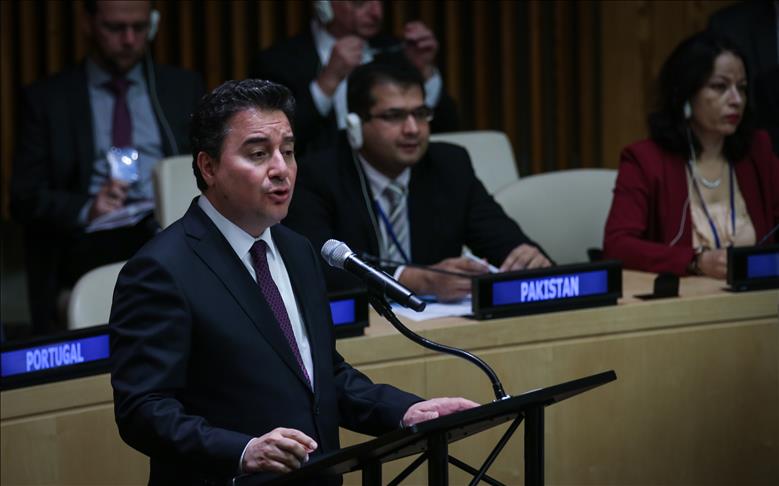
NEW YORK
Counting humanitarian and development assistance as two separate entities fails to address the world's worst protracted crises, Turkish Deputy prime minister said Monday.
"Turkey witnesses these crises most vividly and at first hand in the Syrian crisis with its catastrophic humanitarian consequences," Ali Babacan said during keynote remarks to the UN Economic and Social Council meeting on financing sustainable development.
The conflict in Syria has claimed more than 220,000 lives and prompted an unprecedented refugee crisis resulting in Turkey as the world's largest refugee-hosting country with more than 1.6 million Syrian refugees.
The Organization for Economic Co-operation and Development, or OECD, announced April 8 that the total amount of official development aid, also known as ODA, was stable in 2014 compared to the previous year.
"This may look good. But when we look at the actual ODA inflow to developing countries, we observe a 15 percent decrease,” said Babacan.
"In a way, whenever there is an urgency in terms of humanitarian crises, countries, developed countries mostly, divert their resources to those countries and hence our development budget effectively decreases, which is a big risk for the global development agenda," he added.
Development aid to the least-developed countries also fell by 16 percent in 2014, according to OECD data.
Babacan said a new era of collaboration between humanitarian and development sectors, particularly on humanitarian financing, was needed, adding that next year’s World Humanitarian Summit in Istanbul would provide a unique opportunity to address the issue of humanitarian crises.
Speaking at the same meeting, UN Secretary-General Ban Ki-moon said the global economic recovery from the 2008 financial crisis continued to be sluggish.
"It has been hampered by new challenges, including a number of unexpected shocks, such as heightened geopolitical conflicts in different parts of the world," he said. "Too much is at stake to risk the world economy falling into a stagnant growth path in the longer run."
He said stable and inclusive economic policies by governments alone were not sufficient for sustainable development.
"We must ensure the availability of the required resources for sustainable development at all levels - national, international, public and private," he said.
Anadolu Agency website contains only a portion of the news stories offered to subscribers in the AA News Broadcasting System (HAS), and in summarized form. Please contact us for subscription options.

